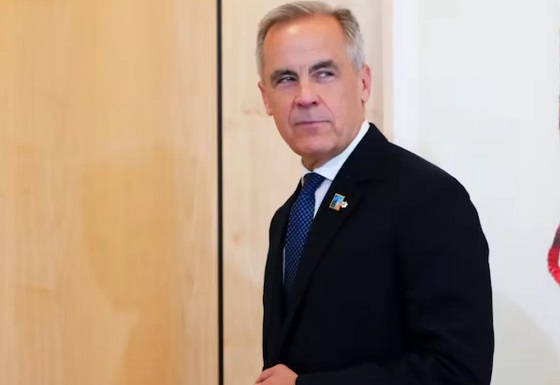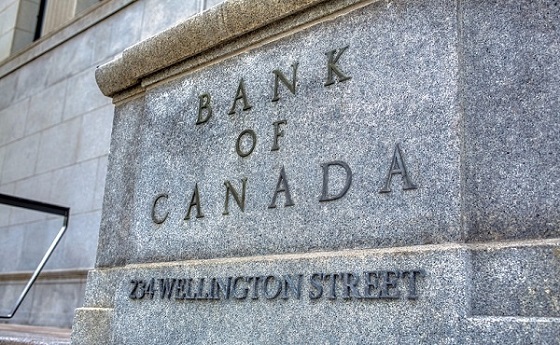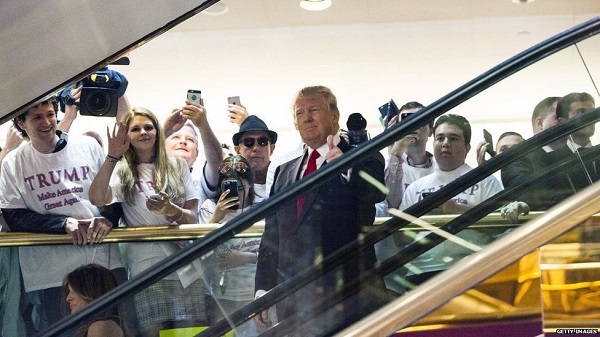Business
Municipal government per-person spending in Canada hit near record levels

From the Fraser Institute
Municipal government spending in Canada hit near record levels in recent years, finds a new study by the Fraser Institute, an independent, non-partisan Canadian public policy think-tank.
“In light of record-high spending in municipalities across Canada, residents should consider whether or not crime, homelessness, public transit and other services have actually improved,” said Austin Thompson, senior policy analyst at the Fraser Institute and author of The Expanding Finances of Local Governments in Canada.
From 2000 to 2023, per-person spending (inflation-adjusted) increased by 25.2 per cent, reaching a record-high $5,974 per person in 2021 before declining slightly to $5,851 in 2023, the latest year of available data.
During that same period, municipal government revenue—generated from property taxes and transfers from other levels of government—increased by 33.7 per cent per person (inflation-adjusted).
And yet, among all three levels of government including federal and provincial, municipal government spending (adjusted for inflation) has actually experienced the slowest rate of growth over the last 10 years, underscoring the large spikes in spending at all government levels across Canada.
“Despite claims from municipal policymakers about their dire financial positions, Canadians should understand the true state of finances at city hall so they can decide whether they’re getting good value for their money,” said Jake Fuss, director of fiscal studies at the Fraser Institute.
The Expanding Finances of Local Governments in Canada, 1990–2023
- Canada’s local governments have experienced substantial fiscal growth in recent decades.
- Revenue and expenditure by local governments—including municipal governments, school boards, and Indigenous governments—have increased faster than population growth and inflation combined. From 1990 to 2023, real per-capita revenue rose by 32.7%, and expenditure by 30.0%.
- Local governments represent a significant component of Canada’s broader public sector. In 2023, net of inter-governmental transfers, municipal governments and school boards accounted for 18.6% of total government expenditure and 11.1% of revenue.
- Despite this growth, local governments’ share of overall government revenue and expenditure has declined over time—especially since the COVID-19 pandemic—as federal and provincial budgets have expanded even more rapidly.
- Nevertheless, between 2008 and 2023 the inflation-adjusted per-capita revenue of municipal governments in-creased by 10.1% and their expenditure by 12.4% , on average across the provinces.
- Over the same period, municipal governments recorded above-inflation increases in their combined annual operating surpluses, which contributed to an 88.1% inflation-adjusted rise in their net worth—raising important questions about the allocation of accumulated resources.
- In 2023, Ontario recorded the highest per-capita municipal revenue among the provinces ($4,156), while Alberta had the highest per-capita expenditure ($3,750). Prince Edward Island reported the lowest per-capita municipal revenue ($1,635) and expenditure ($1,186).
- Wide variation in per-capita municipal revenue and expenditure across the provinces reflects differences in the responsibilities provinces assign to municipalities, as well as possible disparities in the efficiency of service delivery—issues that warrant further scrutiny.
Click Here To Read The Full Study
armed forces
Mark Carney Thinks He’s Cinderella At The Ball

And we all pay when the dancing ends
How to explain Mark Carney’s obsession with Europe and his lack of attention to Canada’s economy and an actual budget?
Carney’s pirouette through NATO meetings, always in his custom-tailored navy blue power suits, carries the desperate whiff of an insecure, small-town outsider who has made it big but will always yearn for old-money credibility. Canada is too young a country, too dynamic and at times a bit too vulgar to claim equal status with Europe’s formerly magnificent and ancient cultures — now failed under the yoke of globalism.
Hysterical foreign policy, unchecked immigration, burgeoning censorship and massive income disparity have conquered much of the continent that many of us used to admire and were even somewhat intimidated by. But we’ve moved on. And yet Carney seems stuck, seeking approval and direction from modern Europe — a place where, for most countries, the glory days are long gone.
Carney’s irresponsible financial commitment to NATO is a reckless and unnecessary expenditure, given that many Canadians are hurting. But it allowed Carney to pick up another photo of himself glad-handing global elites to whom he just sold out his struggling citizens.
From the Globe and Mail
“Prime Minister Mark Carney has committed Canada to the biggest increase in military spending since the Second World War, part of a NATO pledge designed to address the threat of Russian expansionism and to keep Donald Trump from quitting the Western alliance.
Mr. Carney and the leaders of the 31 other member countries issued a joint statement Wednesday at The Hague saying they would raise defence-related spending to the equivalent of 5 per cent of their gross domestic product by 2035.
NATO Secretary-General Mark Rutte said the commitment means “European allies and Canada will do more of the heavy lifting” and take “greater responsibility for our shared security.”
For Canada, this will require spending an additional $50-billion to $90-billion a year – more than doubling the existing defence budget to between $110-billion and $150-billion by 2035, depending on how much the economy grows. This year Ottawa’s defence-related spending is due to top $62-billion.”
You’ll note that spending money we don’t have in order to keep President Trump happy is hardly an elbows up moment, especially given that the pledge followed Carney’s embarrassing interactions with Trump at the G7. I’m all for diplomacy but sick to my teeth of Carney’s two-faced approach to everything. There is no objective truth to anything our prime minister touches. Watch the first few minutes of the video below.

The portents are bad. This from the Globe:
We are poorer than we think. Canadians running their retirement numbers are shining light in the dark corners of household finances in this country. The sums leave many “anxious, fearful and sad about their finances,” according to a Healthcare of Ontario Pension Plan survey recently reported in these pages.
Fifty-two per cent of us worry a lot about our personal finances. Fifty per cent feel frustrated, 47 per cent feel emotionally drained and 43 per cent feel depressed. There is not one survey indicator to suggest Canadians have made financial progress in 2025 compared with 2024.
The video below is a basic “F”- you to Canadians from a Prime Minister who smirks and roles his eyes when questioned about his inept money management.
He did spill the beans to CNN with this unsettling revelation about the staggering numbers we are talking about:
Signing on to NATO’s new defence spending target could cost the federal treasury up to $150 billion a year, Prime Minister Mark Carney said Tuesday in advance of the Western military alliance’s annual summit.
The prime minister made the comments in an interview with CNN International.
“It is a lot of money,” Carney said.
This guy was a banker?
We are witnessing the political equivalent of a vain woman who blows her entire paycheque to look good for an aspirational event even though she can’t afford food or rent. Yes, she sparkled for a moment, but in reality her domaine is crumbling. All she has left are the photographs of her glittery night. Our Prime Minister is collecting his own album of power-proximity photos he can use to wallpaper over his failures as our economy collapses.
The glass slipper doesn’t fit.
Trish Wood is Critical is a reader-supported publication.
To receive new posts and support my work, consider becoming a free or paid subscriber.
Invite your friends and earn rewards
Business
Ottawa Funded the China Ferry Deal—Then Pretended to Oppose It

While Beijing-backed hackers infiltrated Canadian telecoms, federal and B.C. leaders quietly financed a billion-dollar shipbuilding deal with a Chinese state firm—then tried to pass the buck.
So just to recap—because this one’s almost too absurd to believe: BC Ferries cuts a billion-dollar deal with a Chinese state-owned shipyard to build four new ferries. Canada’s Deputy Prime Minister Chrystia Freeland—always quick to perform outrage when the cameras are on—writes a stern letter saying how “dismayed” she is. She scolds British Columbia for daring to do business with a hostile foreign regime that’s literally attacking our critical infrastructure in real time.
And then—wait for it—it turns out her own federal government quietly financed the whole thing.
Yes, really.
According to an explosive report from The Globe and Mail, the Canada Infrastructure Bank—a federal Crown corporation—provided $1 billion in low-interest financing for the very same China shipbuilding deal Freeland claimed to oppose. The contract was signed in March 2025. The outrage? That only came later, when the public found out about it in June.

Freeland’s letter to BC’s Transportation Minister was loaded with warnings. She talked about China’s “unjustified tariffs” and “cybersecurity threats.” She demanded assurances that “no federal funding” would support the purchase. But what she didn’t mention—what she conveniently left out—was that Ottawa had already cut the cheque. The financing was already in place. The loan had been approved. Freeland just didn’t say a word.
And when reporters asked for clarification, what did her office say? Nothing. They passed the buck to another minister. The new Infrastructure Minister, Gregor Robertson, now claims the government had “no influence” in the procurement decision. No influence? You loan a billion dollars to a company and have no opinion on where it goes?
Let’s be clear: This wasn’t some harmless miscommunication. If it wasn’t a cover-up, then it was sheer incompetence—the same brand of incompetence that’s driven our shipyards into obsolescence, our economy into dependence, and our country into managed decline. An entire federal cabinet stood by, watched this unfold, signed the cheque—and then pretended they had nothing to do with it.
And British Columbia’s government? Just as bad. Premier David Eby, the man who pretends to champion “BC First,” claims he was “not happy” with the China deal but says it’s “too late” to change course. Too late? This isn’t an asteroid heading for Earth. It’s a contract. And contracts can be rewritten, canceled, renegotiated—if anyone in charge had the political will to stand up and say, “No, we don’t hand billion-dollar infrastructure projects to hostile regimes.”
But instead, we get excuse after excuse. They say BC Ferries is independent. They say there was no capacity in Canada. They say we had no choice. All the while, Canadian shipyards sit idle, unionized workers are frozen out, and the Canadian taxpayer is stuck subsidizing Chinese shipbuilding—and Chinese espionage.
Because while all of this was happening, we now know that a Chinese state-sponsored hacking group called Salt Typhoon was actively breaching Canadian telecommunications networks. That’s not speculation—it’s confirmed in a federal cyber security bulletin dated June 19, 2025.
Chinese actors exploited a vulnerability in Cisco equipment and infiltrated the networks of at least one major Canadian telecom provider. They pulled config files, rerouted traffic through GRE tunnels, and monitored call metadata and SMS communications. Translation: They were spying. On us. On officials. On infrastructure.
So let’s break this down. In February, China hacked Canadian telecoms. In March, Canada quietly finances a massive shipbuilding contract with China. In June, Freeland pretends to be outraged—while hiding the fact that her own government bankrolled it.
And now we’re told, “There’s nothing to see here. No jurisdiction.”
Really?
Freeland has jurisdiction when it comes to issuing carbon taxes, banning handguns, and lecturing citizens about disinformation—but somehow has no jurisdiction when her own Infrastructure Bank gives a billion dollars to build ships in a country that’s attacking our networks and undermining our democracy?
And it gets worse. The interest rate on the loan? Just 1.8%. That’s below market. That’s a subsidy, plain and simple. The financial gap will be recorded as government funding. So even if the Liberals want to play word games about “no direct funding,” that distinction is meaningless. The money came from taxpayers. It went to BC Ferries. It ended up in the hands of the Chinese Communist Party.
So what do we call this? It’s not economic strategy. It’s not climate policy. It’s not forward-looking infrastructure planning.
It’s decline. Managed decline.
It’s a government that tells Canadians we’re too broke, too slow, too divided to build our own ships. So we’ll just outsource it. To the same regime our intelligence services say is spying on us and interfering in our elections.
This was a test. A big one. And the people who told you they were going to put “Canada First”—people like David Eby and Mark Carney—failed that test spectacularly. When it came time to make a real choice—stand with Canadian workers, Canadian industry, and Canadian sovereignty—or cave to foreign pressure and cheap outsourcing, they chose China.
And then they lied about it.
But Canadians aren’t stupid. We know what leadership looks like—and this isn’t it. We don’t need more slogans. We need action. We need courage. We need people in government who actually believe in this country and the people who built it.
Because Canada can build ships. Canada can defend its infrastructure. And Canada should never hand over critical national projects to a regime that’s actively working against our interests.
If this is what “Canada First” looks like under the Liberals and the BC NDP, then we need something better. It’s time to stop managing decline and start building again.
Call the election. Let Canadians choose a path forward—one rooted in strength, in sovereignty, and in pride. Let us choose leaders who put Canada first—for real.
Subscribe to The Opposition with Dan Knight
-

 International1 day ago
International1 day agoPresident Xi Skips Key Summit, Adding Fuel to Ebbing Power Theories
-

 Health2 days ago
Health2 days ago‘Transgender’ males have 51% higher death rate than general population: study
-

 Alberta2 days ago
Alberta2 days agoSo Alberta, what’s next?
-

 Bjorn Lomborg2 days ago
Bjorn Lomborg2 days agoThe Physics Behind The Spanish Blackout
-

 Business2 days ago
Business2 days agoPotential For Abuse Embedded In Bill C-5
-

 conflict2 days ago
conflict2 days agoDespite shaky start, ceasefire shows signs of holding
-

 Alberta22 hours ago
Alberta22 hours agoAlberta Next Takes A Look At Alberta Provincial Police Force
-

 Alberta17 hours ago
Alberta17 hours agoThe permanent CO2 storage site at the end of the Alberta Carbon Trunk Line is just getting started












